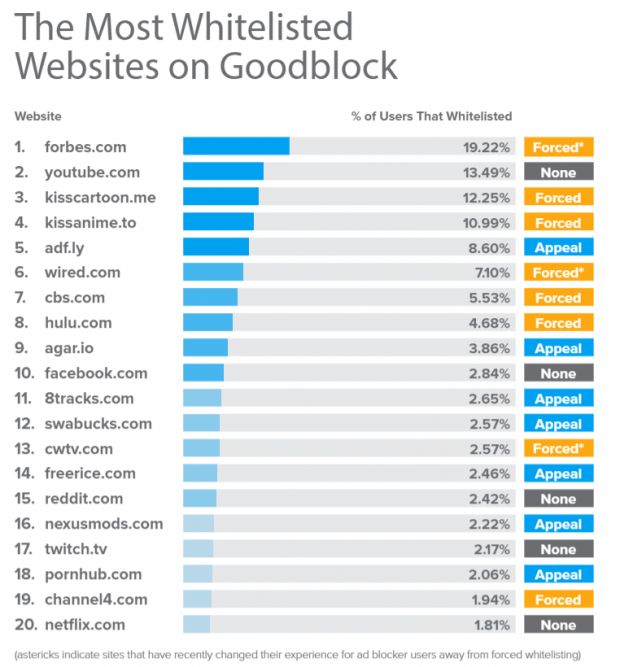A recent survey of people that employ an ad blocker reveals that 77 percent of all users that block ads feel bad about doing so.
The study's result shows that most users understand the core issues at the heart of the ad-blocking debate and don't block ads just for the fun of it.
Gladly, the company behind this survey, says it asked 243 random users of its Goodblock ad blocker about the reasons why they use an ad blocker and how they feel about blocking ads.
Bad ad designs drive users towards using an ad blocker
More than half (51 percent) of users said they started using an ad blocker because of particular sites that had annoying ads. This was by far the most encountered answer, with the second option being "to speed up my web browsing," with 21 percent of all users.
Only 16 percent of users said they started using an ad blocker because they hated all forms of ads.
This comes to show that users feel annoyed by sites and ads that hinder their web browsing experience, and not by the ads themselves.
In fact, 77 percent of all users that employed an ad blocker said they feel some guilt for using the ad blocker, being well aware that sites use the ads to sustain themselves. 77 percent of users that employed an ad blocker also acknowledged they whitelisted at least one site, allowing it to display ads.
The study's result shows that most users understand the core issues at the heart of the ad-blocking debate and don't block ads just for the fun of it.
Gladly, the company behind this survey, says it asked 243 random users of its Goodblock ad blocker about the reasons why they use an ad blocker and how they feel about blocking ads.
Bad ad designs drive users towards using an ad blocker
More than half (51 percent) of users said they started using an ad blocker because of particular sites that had annoying ads. This was by far the most encountered answer, with the second option being "to speed up my web browsing," with 21 percent of all users.
Only 16 percent of users said they started using an ad blocker because they hated all forms of ads.
This comes to show that users feel annoyed by sites and ads that hinder their web browsing experience, and not by the ads themselves.
In fact, 77 percent of all users that employed an ad blocker said they feel some guilt for using the ad blocker, being well aware that sites use the ads to sustain themselves. 77 percent of users that employed an ad blocker also acknowledged they whitelisted at least one site, allowing it to display ads.
Some of the most whitelisted sites
The vast majority (58.5 percent) that did so, did it to "support the website by viewing ads," showing again that users generally don't want to hurt publishers.
Of course, there were sites that forced users to disable their ads, sites such as Forbes, Wired, CBS, or Hulu. Around 41 percent of all users that whitelisted sites said they had to do it because, otherwise, they wouldn't have been able to view the desired content.
Forcing users to disable their ad blocker apparently works
In this latter case, 56.8 percent of users said they didn't mind feeling "forced" to disable their adblocker because they knew the site needed the revenue to survive. Only 31.3 percent of users felt angry, but they disabled it anyway.
But this method of blackmailing users to disable their ad blocker doesn't always work, with 67.7 percent of users still taking a moment to review if they should heed the publisher's request based on how much they like the site.
Only 15.8 percent of users said they "always" disable their ad blocker when they see these requests, 11.5 percent said they refused to visit the site completely, while 2.4 percent said they opted to visit the site via another browser that doesn't use an ad blocker.
"This report shows that ad blocking is a much more nuanced phenomenon than many have assumed," Gladly's Giovanni Berber notes. "The majority of ad blocking users are not downloading ad blockers to remove online advertising completely, but rather to fix user-experience problems on a subset of websites with particularly annoying ads."
